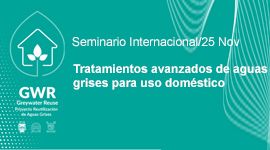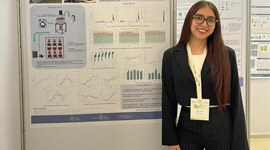You are here
Challenges in Water Management in Chile

Expo Agua 2023, an event that analyzed the water scarcity scenario from an expanded perspective, left several reflections. One of these reflections was the need to reach a new pact for the use of water in Chile and improve all levels of water management. The event also considered the value of technology to optimize water use and the social aspect. The importance of generating an administration model that responds to the country's current needs was highlighted from different perspectives.
Climate change was identified as the most significant factor in the occurrence of phenomena that hinder efficient water management, such as heavy rains causing floods and prolonged droughts. These events alter climatic predictability and undermine the effectiveness of the current water management model, which is based on seasonal cycles with predictable water availability. The experts in attendance agreed on the need to abandon this approach and adapt to the changes. To this end, they proposed several solutions: increasing the use of technology to optimize the quantification of water availability, building new infrastructure to meet current needs, encouraging the development of the desalination industry, and jointly developing a new paradigm for managing water use.
Infrastructure:
Experts agree that new water management infrastructure should be designed to adequately respond to the pressure exerted by extreme weather events so supply failures or interruptions are minimized. To this end, they propose that these projects be resilient, able to withstand climatic events and recover within reasonable time frames in the event of critical incidents. The most critical projects should be redundant to ensure the availability of the resource.
Institutionality:
There was agreement on the need for a more appropriate model to address water use in Chile. The current structure is intricate, and due to its characteristics and the large number of actors involved, it does not have the required speed of response to achieve progress in line with current needs.
One of the most notable proposals stated that agriculture should not consider water a free resource and postulated generating a tariff structure for this sector.
Some dismissed the value of savings in household consumption as an incidental factor given that human consumption represents only 15% of the total. Therefore, any adjustments made in this segment would not solve the overall problem. There is a consensus that water consumption will continue to rise. Rather than savings, the inclusion of new, efficient infrastructure is considered to have a greater impact.
News
 A successful seminar was held on advanced gray water treatment and...
A successful seminar was held on advanced gray water treatment and...
 The international academic network will present its advances in gray...
The international academic network will present its advances in gray...
 The GWR Project attended the Chemical Engineering Congress.
The GWR Project attended the Chemical Engineering Congress.

